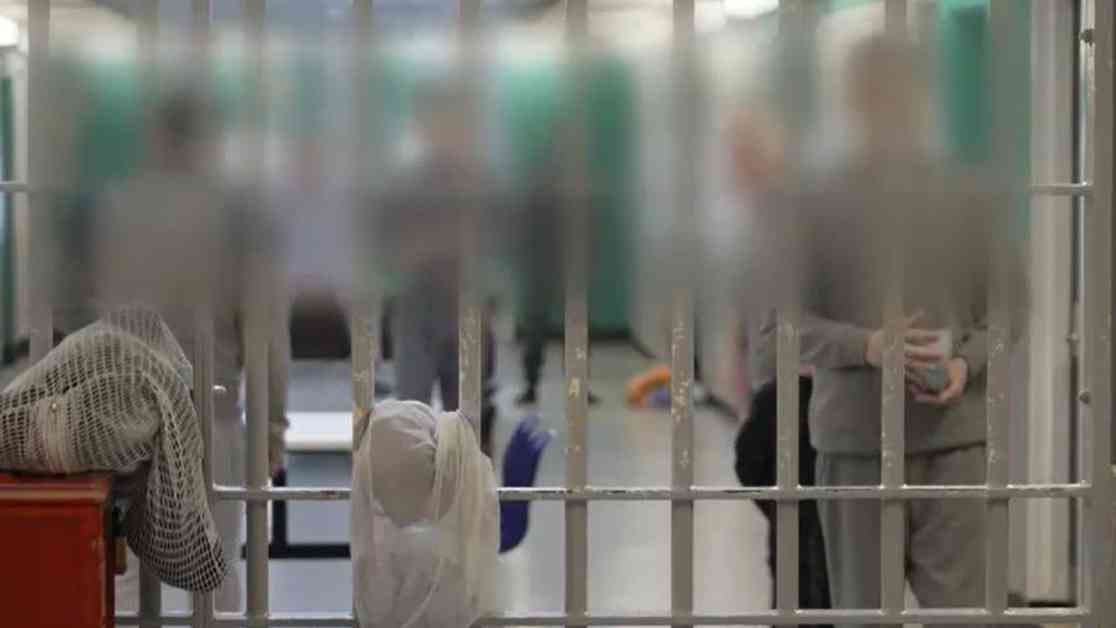Chief Inspector of Probation Expresses Concern Over Reincarceration Trends
The Chief Inspector of Probation, Martin Jones, recently spoke out about the concerning trend of prisoners being sent back to jail by the probation service. In an interview with Sky News, Jones criticized the practice, stating that it is often done as the “easiest thing to do” rather than solely for public protection. He highlighted the impact of caseload pressure on probation officers, leading to unnecessary recalls to address minor issues, resulting in overcrowded prisons with limited benefits.
Jones emphasized that the current system is under immense pressure, lacking the necessary checks and balances to ensure that recalls are truly based on significant risks to the public. Drawing a distinction between serious offenses and minor violations, he questioned the necessity of recalling individuals for non-violent infractions like shoplifting, highlighting the need for a more nuanced approach to probation and reintegration.
## Rising Recalls and Pressures on the System
Data published by the Ministry of Justice revealed a significant increase in the number of recalls in England and Wales, with a 42% rise in recalls from the previous year, reaching a record high. The statistics indicated that 67 out of every 100 released individuals were recalled in the period from July to September, reflecting a growing trend of returning individuals to prison for various reasons.
The rise in recalls has been attributed to factors such as longer sentences, increased caseloads, and changes in probation monitoring requirements. Structural shifts in the service, along with early release schemes, have contributed to the growing recall population, leading to a revolving door effect within the criminal justice system. The Ministry of Justice acknowledged the strain on the system, with overcrowded prisons and delays in parole board decisions exacerbating the issue.
## Personal Stories and Community Impact
To shed light on the human impact of recalls, Sky News visited individuals in Burnley who shared their experiences of repeated recalls. One man recounted being recalled for minor infractions like missed appointments and alcohol-related issues, leading to lengthy periods of re-incarceration despite not committing new crimes. These personal stories underscored the challenges faced by ex-offenders navigating the complexities of probation and reintegration.
Bishop Mick Fleming, who runs a charity supporting former criminals, expressed frustration with the recall system, describing it as “ridiculous” and indicative of a failing prison and probation system. The community at large has also noticed a surge in recalls, reflecting a broader sentiment of disillusionment with the current approach to offender management.
## Calls for Reform and Public Safety
Prison staff and officials at HMP Elmley in Kent echoed concerns about the impact of recalls on the prison system, referring to it as a “revolving door” that contributes to overcrowding and operational challenges. Calls for reducing recalls and implementing reforms to streamline the re-release process were emphasized as crucial steps to alleviate pressure on the system and enhance public safety.
In response to the growing recall crisis, the Ministry of Justice outlined plans to reform the recall and re-release process while maintaining safeguards for public safety. With prisons on the brink of overflowing and delays in decision-making processes, urgent action is needed to address the root causes of the recall surge and ensure a more effective and equitable approach to probation and offender management.
The concerns raised by Chief Inspector Martin Jones and the community at large highlight the need for comprehensive reforms to the current probation system. By addressing the underlying issues driving the increase in recalls and prioritizing public safety, policymakers can work towards a more sustainable and supportive approach to offender rehabilitation and reintegration.













